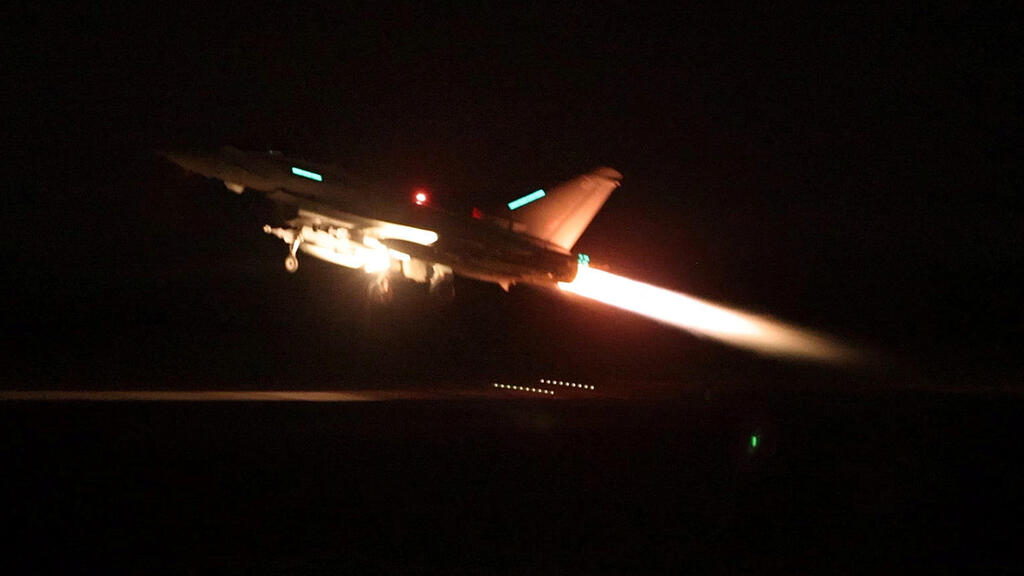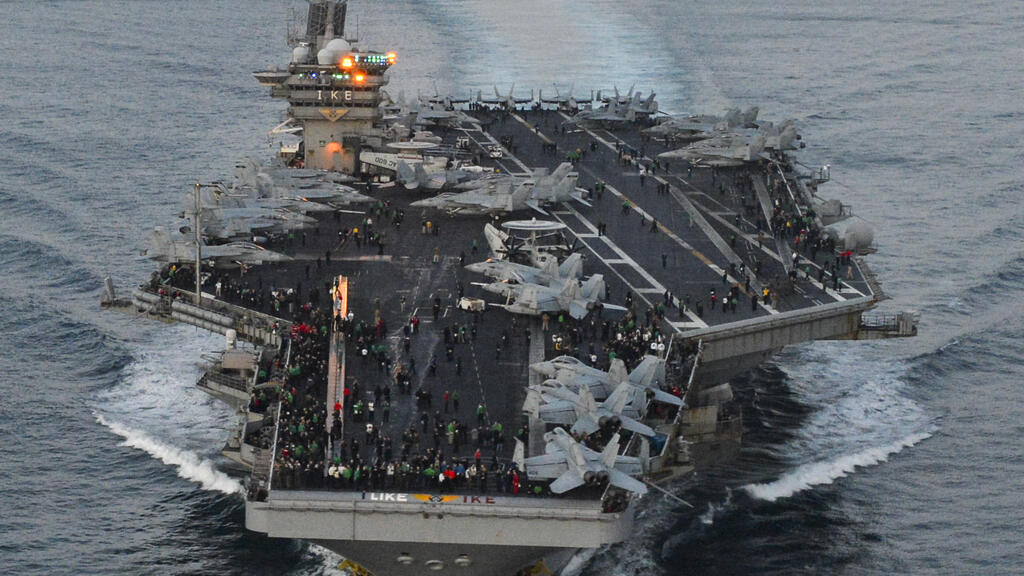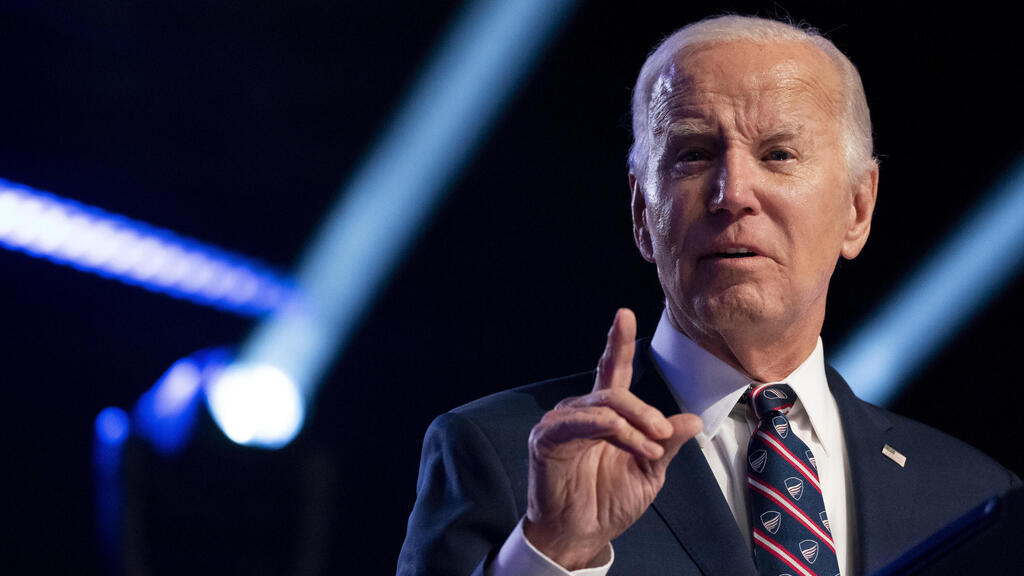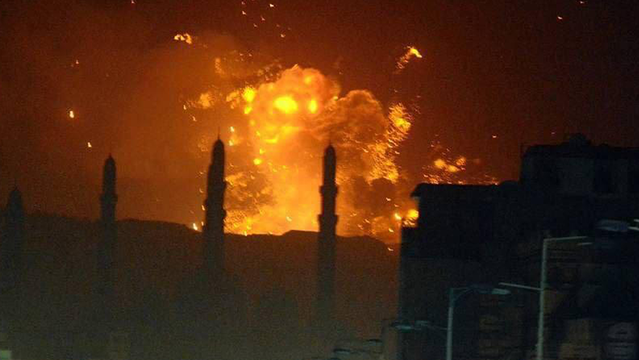The attacks launched against the Houthis, was prepared by the Pentagon and the British war office as of weeks ago after it was clear that the Iranian proxies were expanding their threats not only to the Bab el Mandeb straits connecting the Indian Ocean and the Red Sea, but also to the Arabian Sea, where they targeted ships that had no connection to Israel, among them U.S. and British naval vessels.
Read more:
CENTCOM was tasked with the mission and specifically the USS Dwight D. Eisenhower carrier task force deployed to the area. At least five people were killed among the Houthi force in Friday's assault, 10 were killed earlier when they tried to board a merchant ship, while the outcome of the latest strike remain unclear. The Houthis said they would respond but the more important question is what would their patrons in Tehran do?
Before Friday, the Biden administration took its time. The president and his team were concerned that a response of the Yemeni rebel group would lead to a regional war, which Washington was hoping to avoid, since it was clear both there and in London, that Iran was behind the attacks. The Iranians not only identified ships to be targeted but also assists the Houthis in tracking the vessels but also supplies them with material to produce their various rockets and their attack drones.
The Biden administration hoped that the formation of a 12-nation coalition would deter Houthi attacks as well as Iran which would seek to avoid a confrontation with the international community that is represented in the U.S.-led naval force.
4 View gallery


U.S., UK navy jets strike Houthi targets in Yemen on Friday
(Photo: / UK MOD / Handout / Reuters )
Houthi attacks on maritime traffic was becoming an international problem that endangered cargo shipping in the Bab el Mandeb straits leading to the Suez Cananl, where 12% of the world's trade and 10% of the industrial world's energy supplies, travels.
The U.S. believed that once their coalition is formed, Iran would understand that it was risking sanctions but realized that they were wrong. The Houthis not only seems undeterred, they even increased their attacks and in one case, Iran itself struck a ship with ties to Israel, near India.
Although CENTCOM had had a plan to attack Yemen, the White House opted to wait. U.S. forces did attack Shi'ite militias working on behalf of Iran in Syria and Iraq but those were seen as low impact strikes similar to those carried out before October 7. The Houthi attacks had strategic ramifications because they targeted nearly all vessels indiscriminately on one of the more important maritime routes in the world.
Biden has come under criticism within his own Democrat Party as well as in Congress but as commander in chief had refused to give the order to strike. The change came when the Houthis targeted the U.S. and British warships in a strike by 21 UAVs and missiles meant not only to result in a perceived victory over the Western forces but also to overcome their defenses and succeed in inflicting real damage.
The Houthis did not succeed in achieving those goals and all missiles and drones fired at the warships were shot down but such a direct and blatant attack could not go unanswered which is why the order was finally given to strike, not only from the Red Sea but also from the Mediterranean. The first strike was meant to disrupt the Houthis ability to fire missile and drones from Yemen, and the ability of Iran to restock the Houthi arsenal.
The naval alliance was careful not to cause collateral damage and the Houthis clearly still have the capability of firing missiles and drones towards ships sailing in the Red Sea and towards Israel. The airport runways that were hit in Yemen would also be repaired to receive Iranian supplies. Still, the attacks, assisted by Bahrain, Canada and Australia, were to be seen as a warning: If attacks on international trade routes and alliance naval ships persist, the response would be more meaningful. The U.S. currently deploys 2,000 marines on board naval vessels in the area, and they could carry out attacks on the ground, if needed.
The action taken by the U.S. and Britain showed Israel that the West was still on its side and willing to risk a broader regional conflict in the Middle East. But Israel is not the main story here. The warning to the Houthis and to Iran, are.
The American patience is running out, and Tehran and not only the Houthis could bare the consequences. This does not mean an American attack on Iran at this point, but diplomatic and economic steps could be taken. By exhibiting its firm position, the U.S. is issuing a general warning to Iran, including in regard to its military nuclear ambitions. The regime in Tehran may now have to rethink its strategy.
Even if the message is received in Yemen, the Houthis have already won. Much of the maritime trade has been redirected away from the Red Sea. Like Hamas the rebel group hopes Israel's offensive in Gaza would be stopped and that would given them the excuse to cease their fire and remove the threat of attack from their own forces.
Now that the U.S. and its allies have taken the step to extensively strike the Houthis, further aggression could spark a regional war that would be much more deadly, as both the Yemeni rebel group and their Iranian patrons know well.





